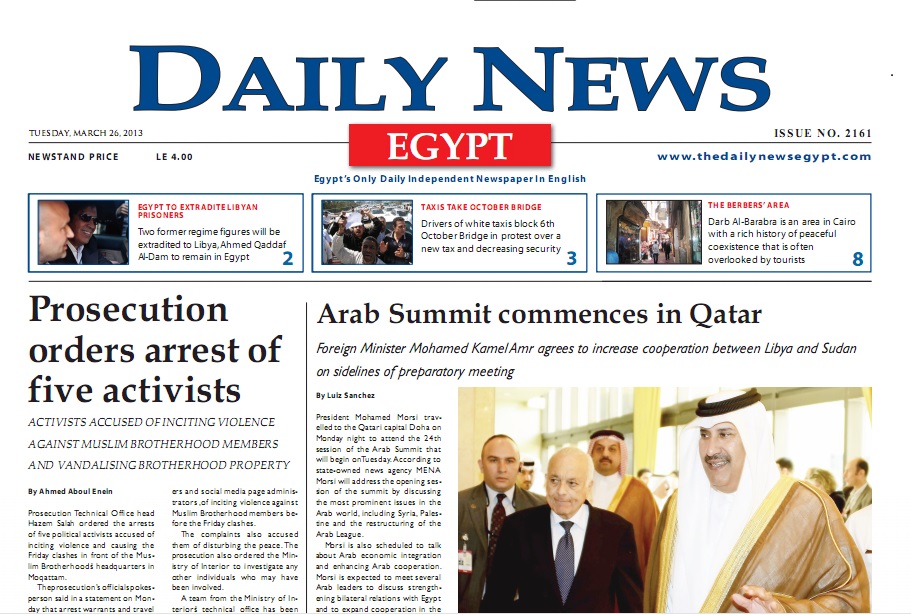
(AFP Photo)
Egypt will never be an obstacle to comprehensive development in Nile Basin countries, Foreign Minister Nabil Fahmy stressed during his tour to the region.
Fahmy was part of a tour that included Minister of Agriculture Ayman Abu Hadid and interim Minister of Housing, Utilities, and Urban Development Ibrahim Mahlab. The Ministers made their first stop in Uganda, where they met with President Yoweri Museveni, followed by a trip to Burundi where the delegation met with President Pierre Nkurunziza.
In Burundi, Fahmy said the trip sends a clear message of interim president Adly Mansour’s prioritisation of “reinforcing ties with Nile Basin countries in all fields,” according to a foreign ministry statement.
Cairo University Professor of Political Science and ex-Dean of the Institute of African Research and Studies Mahmoud Abu Elenein said there are many aspects to such a trip. Abu Elenein said the trip means that Egypt is starting new chapters in cooperation and dialogue.
Nile Basin countries have been split over the Cooperative Framework Agreement, also known as the Entebbe Agreement. Former Minister of Water Resources and Irrigation Mohamed Bahaa ElDin said in May that the agreement is not suitable for downstream countries and that Egypt rejects it.
Abu Elenein said there must be “channels for political contact with Nile Basin countries, whether there is a crisis or not.” He added that Egypt’s relationship with them must be continuous.
Fahmy assured officials in Burundi and Uganda that Egypt’s orientation towards the Nile Basin countries is not “tactical” and is not designed to achieve temporary goals that are related to the Nile water issue. Fahmy said this orientation reflects Egypt’s “belonging to the African continent” in general and specifically to the Nile Basin countries.
Fahmy had said, earlier on Tuesday that Egypt was “re-positioning Egypt in its rightful place as a country of Arab identity and African roots,” which Abu Elenein said he believed addresses African impressions about Egypt and Sudan’s identities. The Sudanese government in Khartoum’s attitude towards South Sudan is among the major sources of tension in Africa between Arabs and non-Arabs, he added.
“Egypt is an integral part of Africa,” Abu Elenein said, stressing its historical and geographical connections via the Nile.
Initially, the tour was going to include the Democratic Republic of Congo but the Egyptian delegation chose not to visit it because of Congolese talks over the country’s east, where a militant group of rebels is involved in an armed conflict with the government.
Tensions had run high between Egypt and another Nile Basin country, Ethiopia, earlier this year over the latter’s construction of the Grand Ethiopian Renaissance Dam. Egypt has long received the largest share of the water from the Nile, as per agreements signed in 1929 and 1959, which guaranteed Egypt 55.5bn cubic metres of the estimated total of 84bn cubic metres of Nile water produced each year.
A meeting has been organised to take place in Khartoum in the first week of November to discuss the findings of an international tripartite report released in June. Attending the meeting will be interim Minister of Irrigation and Water Resources Mohamed Abdel Motaleb and his Sudanese and Ethiopian counterparts.



